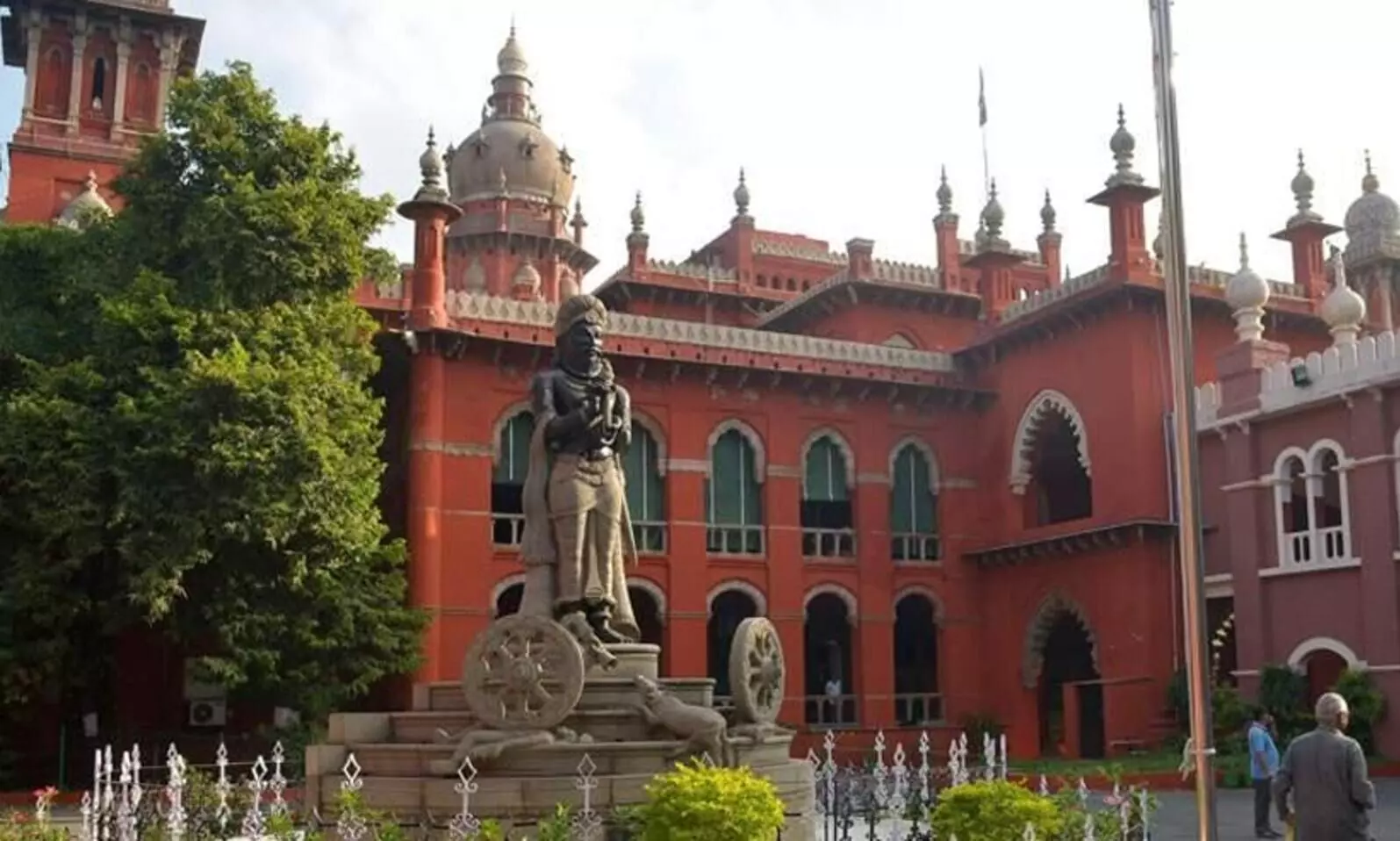
Plea in Madras HC challenging transfer of 'Education' from State List To Concurrent List
text_fieldsChennai: A writ petition has filed at Madras High Court challenging Section 57 of the Constitution (Forty Second Amendment) Act of 1976, through which "education" was transferred from the State list to the Concurrent list of the Constitution.
The petitioner, Arram Seyya Virumbu trust has challenged the constitutional amendment on the grounds that it had resulted in upsetting the federal structure that is a basic feature of the Constitution.
Chief Justice Sanjib Banerjee and Justice P.D. Audikesavalu suo moto included the state government as a respondent to the case, and ordered both it and the Union governments to file their counter-affidavits within eight weeks. The court said that it will hear the case after ten weeks.
DMK MLA, Dr Ezhilan Naganathan, who filed the writ petition on behalf of the trust, sought Section 57 of the constitutional amendment be struck down to restore the position of education as a state subject.
Additional Solicitor General R. Sankaranarayanan, who appeared on behalf of the Union Government said that there was no threat to the federal structure envisaged in the constitution, as education has been moved from State list to Concurrent list and not to the Union list. He also sought time to file a detailed counter affidavit, the bench directed the Central and state governments to produce the affidavit within eight weeks.
Senior counsel, N.R. Elango appearing for the petitioner, said that moving a subject from one list to another in the seventh schedule of the Constitution could not be done unilaterally by the Parliament, and requires a special procedure of obtaining ratification by the states. He also dismissed the contention that there was any threat to the federal structure as education had been moved only from the State list to the Concurrent list and not to the Union list.
The trust also argued that in large democracies like Canada, Australia, and the US, education continued to be treated as a state/provincial subject and said that implementation of the National Education Policy (NEP) will lead to a situation wherein the autonomy of the state in the field of education will be completely taken away. It argued that this would strike at the root of the federal structure.
The petitioner further argued that the very purpose of the concurrent list is defeated due to the recent policies framed by the Union regarding education as even a secondary legislation by the Union will overturn a primary law made by a State on a List III subject. This in effect takes away the powers of the State to legislate on education, the petitioner added further.
The plea also averred that such a disturbance in the federal balance was evident from the recent legislations such as - National Council of Teacher Education (NCTE) Act, 1993, the NCTE (Determination of Minimum Qualifications for Persons to be recruited as Teachers and Physical Education Teacher in pre-primary, upper primary, secondary, senior secondary or intermediate schools or colleges) Regulations of 2014 and the National Education Policy (NEP) of 2020.
Notably, the petition comes close on the heels with the bill passed by the Tamil Nadu assembly to exempt the medical admissions in the state from NEET.
























